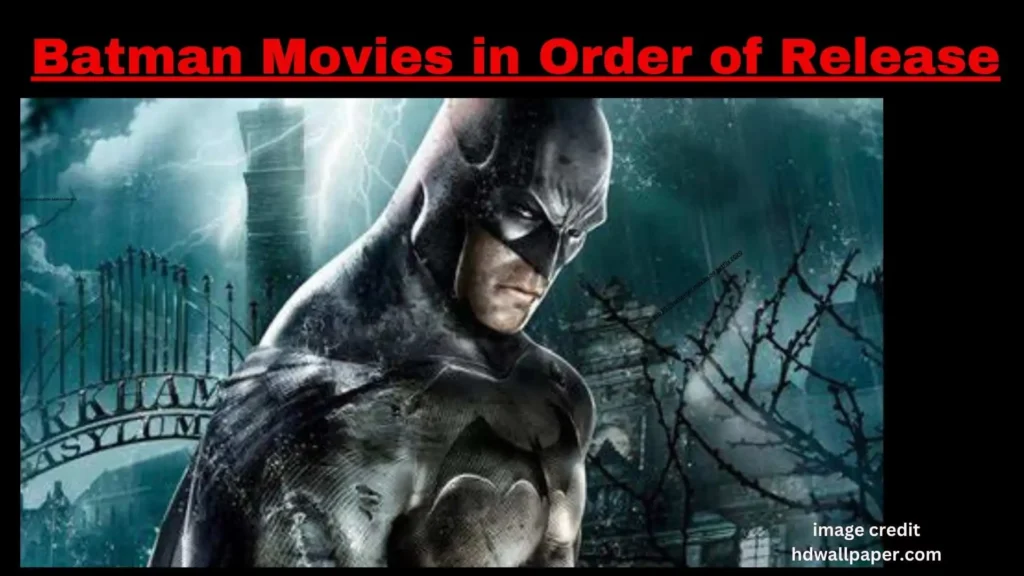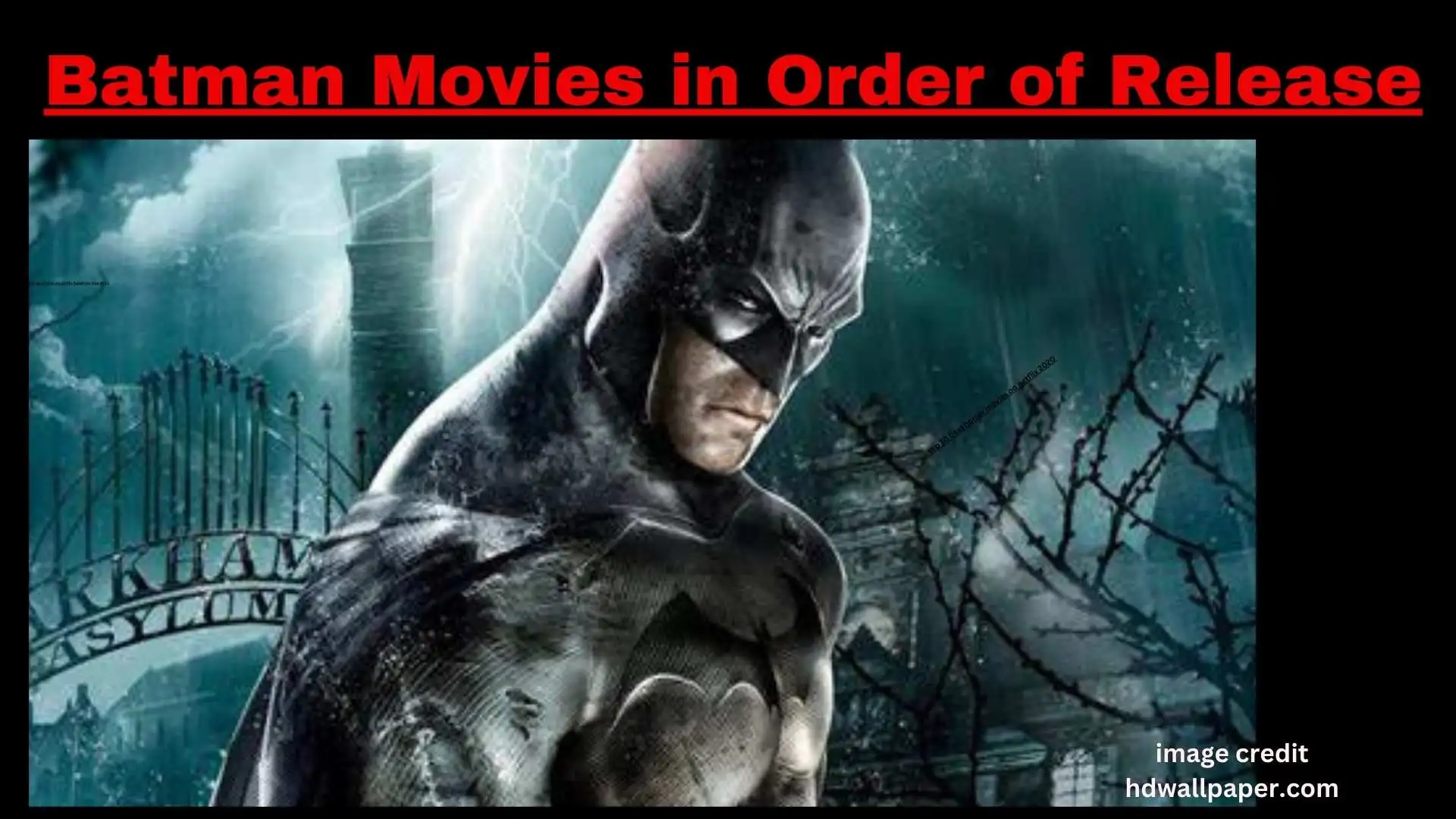Unveiling the Cinematic Odyssey of Batman: A Century-Long Journey
Batman, the iconic caped crusader, has not only withstood the test of time but has also evolved through various forms of storytelling and merchandise over the past century. In this comprehensive exploration, we delve into the live-action Batman movies that have left an indelible mark on cinema and pop culture.
Batman Through the Decades
Batman (1943) and Batman and Robin (1949)

The nascent years of Batman on the silver screen marked the character’s introduction in serial format. Batman (1943) and Batman and Robin (1949), though modest in production compared to contemporary standards, laid the foundation for the cinematic journey of the Dark Knight.
Batman (1966)
The swinging sixties saw the emergence of a more flamboyant Batman with Batman (1966). Adam West donned the cape and cowl, bringing a campy and humorous take to the character, creating a unique cinematic experience.
Tim Burton’s Batman Era: Batman (1989) and Batman Returns (1992)
Tim Burton’s visionary approach reshaped Batman’s cinematic narrative with Batman (1989) and its sequel Batman Returns (1992). Michael Keaton’s portrayal of Batman and Jack Nicholson’s iconic Joker set a new standard for superhero films.
Batman Forever (1995) and Batman & Robin (1997)
The mid-’90s introduced a vibrant and neon-soaked Gotham City in Batman Forever (1995). However, the franchise took a divisive turn with Batman & Robin (1997), criticized for its campiness and over-the-top elements, temporarily halting Batman’s cinematic momentum.
Christopher Nolan’s Trilogy: Batman Begins (2005), The Dark Knight (2008), The Dark Knight Rises (2012)
The early 2000s witnessed a monumental resurgence with Christopher Nolan’s trilogy. Batman Begins (2005) initiated a darker, more grounded Batman, culminating in the masterful The Dark Knight (2008) and its epic conclusion, The Dark Knight Rises (2012).
Dawn of the DC Extended Universe: Batman v Superman (2015), Suicide Squad (2016), and Justice League (2017)
Zack Snyder’s vision expanded the Batman universe with Batman v Superman: Dawn of Justice (2015), where Ben Affleck’s Batman shared the screen with Superman. The subsequent films, Suicide Squad (2016) and Justice League (2017), added depth to Batman’s role in the evolving DC Extended Universe.
Standalone Success: Joker (2019) and Zack Snyder’s Justice League (2021)
In 2019, Joaquin Phoenix’s portrayal of the Joker garnered critical acclaim in the standalone film Joker (2019). Zack Snyder’s director’s cut, Zack Snyder’s Justice League (2021), provided an extended and enriched view of Batman’s character, resonating with both fans and critics.
The Future of Batman: The Batman (2022) and The Flash (2023)
As we step into the future, Robert Pattinson takes on the mantle of Batman in The Batman (2022). Anticipation builds with the upcoming release of The Flash (2023), promising an intriguing exploration of the multiverse and Batman’s role within it.
Crafting a Unique Cinematic Narrative
Batman’s cinematic journey is not merely a chronological sequence but a rich tapestry of storytelling, character evolution, and cinematic innovation. Each iteration of the Caped Crusader has contributed to the character’s legacy, offering audiences a diverse range of experiences.
The Evolution of Batman’s Character
From the lighthearted and campy portrayals of the ’60s to the dark and complex narratives of the 21st century, Batman’s character has undergone a remarkable evolution. Directors and actors have brought their unique perspectives, contributing to the multifaceted nature of the iconic superhero.
Impact on Pop Culture
Beyond the silver screen, Batman’s influence extends into every facet of popular culture. The bat symbol, rogues’ gallery, and memorable quotes have become ingrained in the collective consciousness, transcending the boundaries of cinema and becoming cultural touchstones.
Concluding Thoughts
As we traverse the cinematic timeline of Batman, it becomes evident that the character’s enduring appeal lies in its ability to adapt and resonate with audiences across generations. The live-action movies have not only entertained but also shaped the way we perceive superheroes on the big screen.
In our exploration of Batman’s cinematic journey, we have witnessed the character’s transformation from a serialized hero of the ’40s to a complex and nuanced figure in contemporary cinema. The upcoming releases, particularly The Batman (2022) and The Flash (2023), signal a continued exploration of Batman’s rich mythology.
Who are the traitors in Season 2 Competition Series ?
Barry Keoghan’s Red Carpet Debut with Chart-Topping Girlfriend at the Golden Globes

1 thought on “Batman Movies in Order of Release”